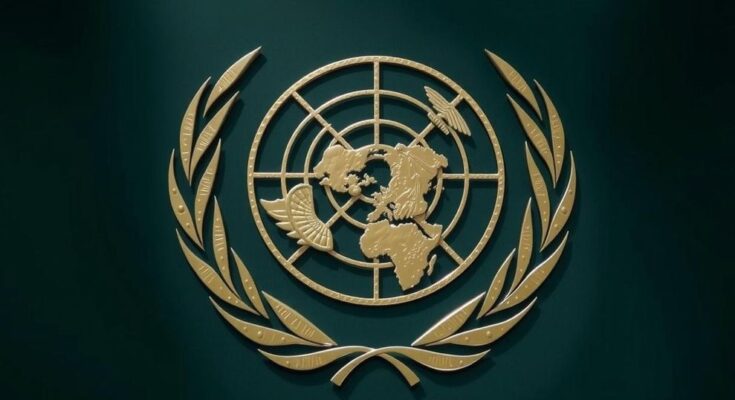The Independent International Commission of Inquiry reports that Syria faces increasing dangers from regional conflicts, leading to massive refugee displacement and ongoing humanitarian crises. Chair Paulo Pinheiro highlights the difficulty of choices for refugees between immediate peril or returning to dangerous conditions. Continued violence and systemic abuses create significant obstacles for safe returns, necessitating increased humanitarian support and adherence to international law from member states.
The Independent International Commission of Inquiry on the Syrian Arab Republic recently addressed the UN General Assembly, highlighting Syria’s alarming descent into chaos amidst the region’s tumultuous conflicts. Over 300,000 Syrian refugees have been displaced as they flee Israeli bombardments from Lebanon into a war-ravaged homeland struggling under its own humanitarian crisis. The Chair, Paulo Sérgio Pinheiro, underscored the dire choices facing these individuals as they risk their lives, either enduring bombs in a foreign land or returning to a place fraught with peril. Many refugees, particularly women and children, embark on dangerous journeys into Syria, as male family members often stay behind or attempt risky crossings via smugglers. Reports concerning the abuse and exploitation of displaced individuals by armed actors at checkpoints are being investigated by the Commission. Pinheiro called for immediate action to eliminate such violations and demanded commitments to uphold the rights of all fleeing persons, urging governments to allow access for humanitarian and human rights organizations. Before the recent escalation, merely 1.7% of refugees planned to return to Syria shortly due to pressing safety concerns. While the Syrian government has made some efforts to ease the situation—for instance, suspending certain financial entry requirements—many obstacles to safe returns persist, including ongoing violence and government abuses. Armed groups control significant areas of Syria, posing threats to civilians and further complicating the return process. In recent months, fighting has surged across multiple frontlines in Syria, exacerbated by rampant Israeli airstrikes and escalating hostilities involving various factions. The Commission reported alarming increases in attacks that have led to civilian casualties and further displacements. Compounded by the systematic destruction of homes and properties, the humanitarian crisis deepens, with over 13 million individuals now dependent on critical assistance. The ongoing struggle for humanitarian access is further obstructed by international sanctions, which disproportionately affect financial aid to local actors. The Commission called for urgent collective action from member states to address these humanitarian needs. In conclusion, Pinheiro echoed UN leadership’s calls for immediate ceasefires in linked regional conflicts, while emphasizing that silence and complicity have led to normalized violations of international law. The path forward requires unwavering commitment to uphold human dignity and fundamental rights amidst the chaos.
The Independent International Commission of Inquiry on the Syrian Arab Republic was established on August 22, 2011, by the Human Rights Council. Its mission is to investigate violations of international human rights law in Syria, facilitating accountability for crimes against humanity and ensuring justice. As conflicts have continued, the mandate of the Commission has been extended multiple times, most recently until March 31, 2025, indicating the ongoing need for oversight of the dire humanitarian situation in Syria.
The situation in Syria remains critical as regional conflicts intensify, leading to further humanitarian crises and insecurity. The Commission’s call for immediate humanitarian access and respect for international laws signals the urgent need for action. Addressing the rampant rights violations and preventing further displacements requires a united response from the global community, emphasizing dignity and rights for all individuals affected by these conflicts.
Original Source: reliefweb.int



